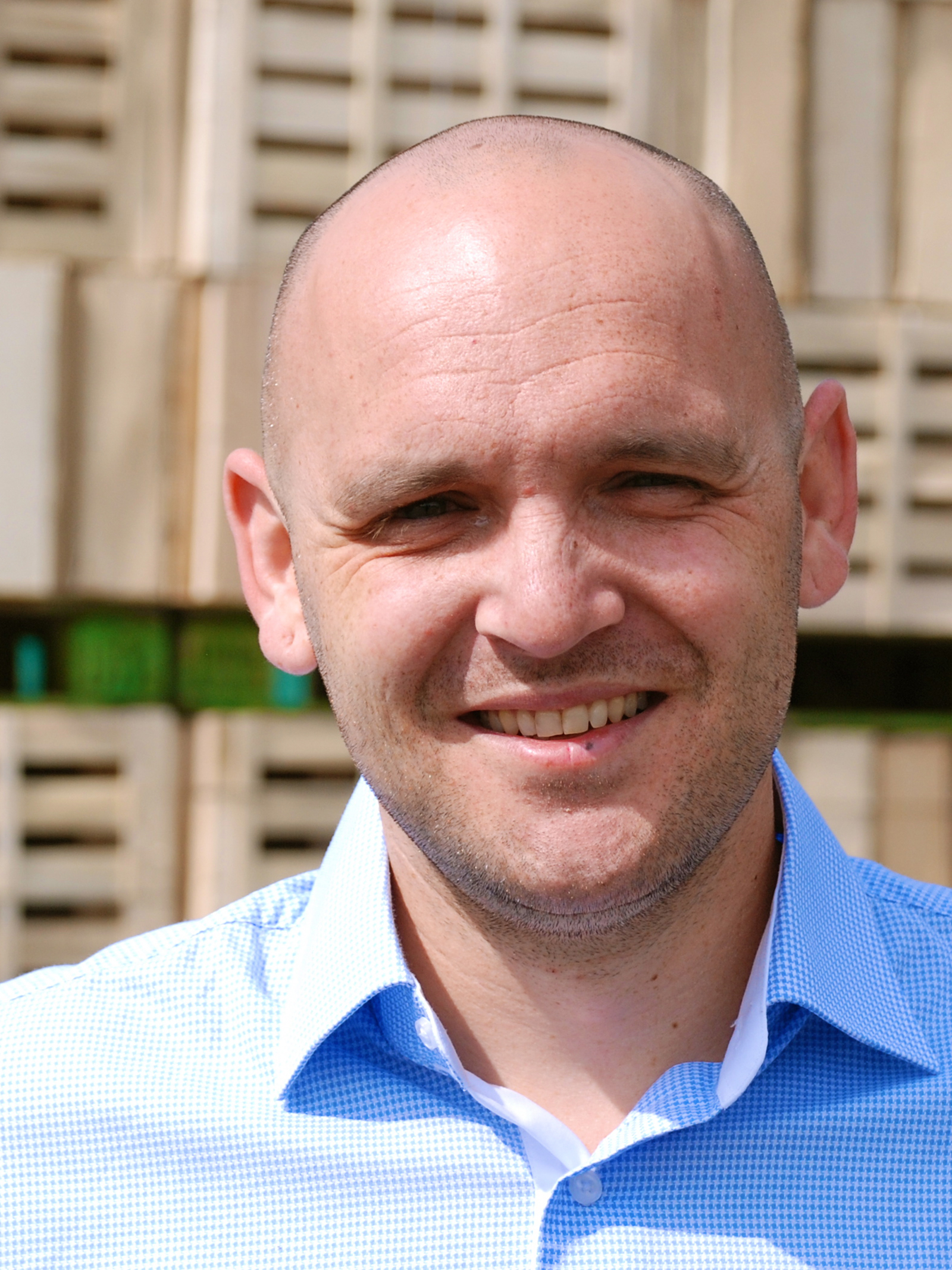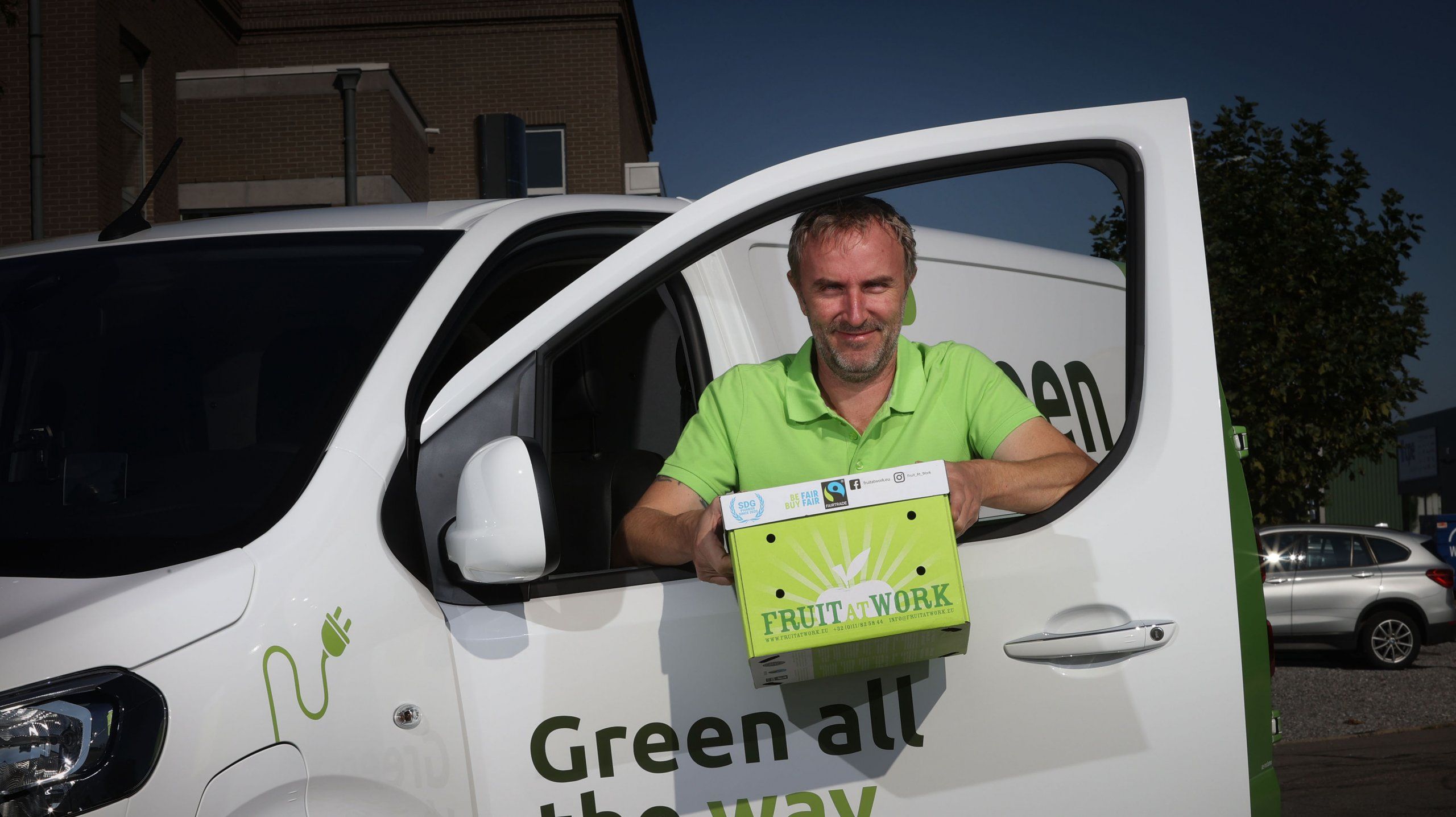Fruit At Work behaalt het X² Genderequivalent approved enterprise Certificaat.
Duurzaam ondernemen mag geen windowdressing zijn.

Sustainable entrepreneurship doesn’t stop after earning a certificate, it’s a continuously evolving way of working. In today’s world, embracing ecology and sustainability through innovative entrepreneurship deserves our full support.
To all fellow entrepreneurs: choose sustainable solutions in your corporate processes. In the long term, this is how we’ll come out on top and secure a future for the generations to come.
Read below the story of Luc Jordens, who launched a fully electric courier service and now delivers fruit for Fruit At Work with zero CO₂ emissions. All the best to Luc & Green Delivery!
Youri Aerts - General Manager Fruit At Work
Start-up delivers Fruit At Work's fruit with zero CO₂ emissions
Delivering parcels without CO₂ emissions? It’s possible. Luc Jordens started a courier service in Pelt (Limburg) using fully electric vans. “Anyone who can do something for the climate should,” says Jordens.
A modest start
Just a few weeks ago, Jordens delivered his first parcels. On behalf of Fruit At Work, he now serves clients in northern Limburg. With a range of 300 kilometres between charges, that’s perfectly feasible. But the launch wasn’t smooth—Jordens was affected by the global chip shortage. “I ordered the first van in January, but it only arrived recently.”
Initially, the start-up targets customers in the wider region. “I once bought something online,” Jordens says. “As it turns out, it was produced only 800 meters from my home but it was shipped to a distribution centre in Liège and then back to North Limburg. Companies should really reassess their logistics.”
Sustainability focus
Interest in the initiative is growing—especially among companies that are prioritising sustainability. Jordens has since hired his first employee and a second van is on the way. “Delivering parcels with electric vehicles currently costs about 10–15% more than traditional methods,” he admits. But that is probably temporary. Jordens estimates that his e-van costs about a third per kilometre compared to a diesel van, partly offsetting the higher purchase price.
The expectation is that electric vans will increasingly take over parcel delivery. Major delivery companies are already transitioning to eco-friendly transport. CityDepot and DHL are investing in electric fleets, while bpost has ordered over 1,200 electric vans. Online supermarket Hopr already uses an electric van for deliveries.
Green Delivery has found its home at the Noorderlicht business park in Pelt, hosted by technical service provider Euroquip, which recently launched a division for EV charging cables. “We can’t be delivering charging cables with a diesel van,” says CEO Stephan Vandebeeck, who’s happy to support the start-up.
Source: Het belang van Limburg



